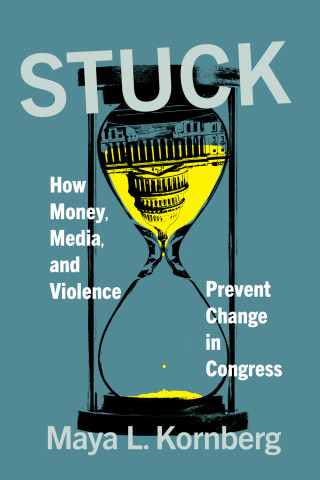
Reviews
Editors Abraham F. Lowenthal and Mariano E. Bertucci present a collection of readable, reflective essays written by scholars and practitioners... The collaboration between scholar and practitioner is an undertapped but potentially powerful resource. By exhibiting a degree of humility, and heeding some of the lessons in this book, we can break down the insularity of the two fields to very beneficial effect.
This superb volume is very much needed... Its essays join a number of highly regarded scholar–practitioners from across the Americas and Europe, and the authors take a hard look at the experience in a number of policy areas and countries or regions.
Both scholars and policy makers who are looking for ideas on how to bridge the gap between their two worlds will find this book a valuable resource.
With honorable exceptions, those who conduct foreign policy and those who do research on international relations rarely learn from each other. This meaty and well-crafted book offers innovative suggestions, based on the experiences of scholars with strong policy interests and officials with keen analytic skills, to strengthen both practice and theory by building more fruitful connections between academia and the policy world.
Most foreign policy practitioners in the United States and elsewhere seem to avoid contact with academic theory, and scholars generally reciprocate; indeed this gap has widened in recent years. Lowenthal and Bertucci are right to argue that this gap can and should be bridged, to benefit both theory and practice. This book provides thoughtful, practical and timely suggestions for doing so.
Lucid and engaging, this book seeks out voices from well-known academics and policymakers, along with experts whose work regularly bridges the gap between the worlds of international affairs and serious scholarship. Excellent narrative essays seek to strengthen scholar-practitioner interaction by combining original research and recommendations for effective engagement with comparative analyses of important cases.
This timely volume is a ladder thrown across the yawning gap between academe and the policy world. It is packed with helpful, firsthand advice for those who might wish to cross over from those on both sides who have successfully made the journey.
Bringing valuable new insight in the perennial debate about 'bridging the gap,' this timely and enlightening book reveals many 'gaps'—generational, national, and ideological—in the relationship between the academy and the policy world, and yet finds enduring shared values: not least, the need for accurate data and the commitment to the public good.
Book Details
Acknowledgments
Building Bridges Between Worlds of Thought and Action
Part I: Recognizing Opportunities
Chapter 1. What Do Scholars Bring to Government and Take Back Again?
Chapter 2. Connecting the
Acknowledgments
Building Bridges Between Worlds of Thought and Action
Part I: Recognizing Opportunities
Chapter 1. What Do Scholars Bring to Government and Take Back Again?
Chapter 2. Connecting the "Idea" World with the "Real" One: Reflections on Academe and Policy
Part II: Setting Agendas and Framing Issues
Chapter 3. Scholars, Policymakers, and Agenda Creation: Women in Development
Chapter 4. Dialogue of the Deaf: Scholars, Policymakers, and the Drug War in US Foreign Relations
Part III: Developing Policy Options
Chapter 5. "Speaking Truth to Power" in Mexico: Gaps, Bridges, and Trampolines
Chapter 6. Scholars Who Became Practitioners: The Influence of Research on the Design, Evaluation, and Political Survival of Mexico's Antipoverty Program
Chapter 7. Missing Scholars and Hard-Nosed Cops: The Weak Research behind Citizen Security Policies
Part IV: Shaping, Implementing, Evaluating, and Revising Policy
Chapter 8. Scholarly Participation in Transnational Policy Networks: The Case of Targeted Sanctions
Chapter 9. Contributing to Policy through Evaluation: USAID and Democracy Promotion
Chapter 10. Transforming Argentine Foreign Policy: Politicians, Scholars, and Diplomats
Part V: Praxis and the Academy: Perspectives from Policymakers
Chapter 11. The Long Diplomacy: How a Changing World Creates New Opportunities for Partnership between Scholars and Practitioners
Chapter 12. How Scholars Can Contribute to Policymaking: Lessons from Mexico
Part VI: Understanding, Respecting, and Gaining from Differences
Chapter 13. Scholars and Policymakers: Canadian and Asia Pacific Experiences
Chapter 14. On the Scholar-Practitioner Interface: Separation and Synergy
Chapter 15. Scholars, Policymakers, and International Affairs: Toward More Fruitful Connections
Bibliography
List of Contributors
Index





